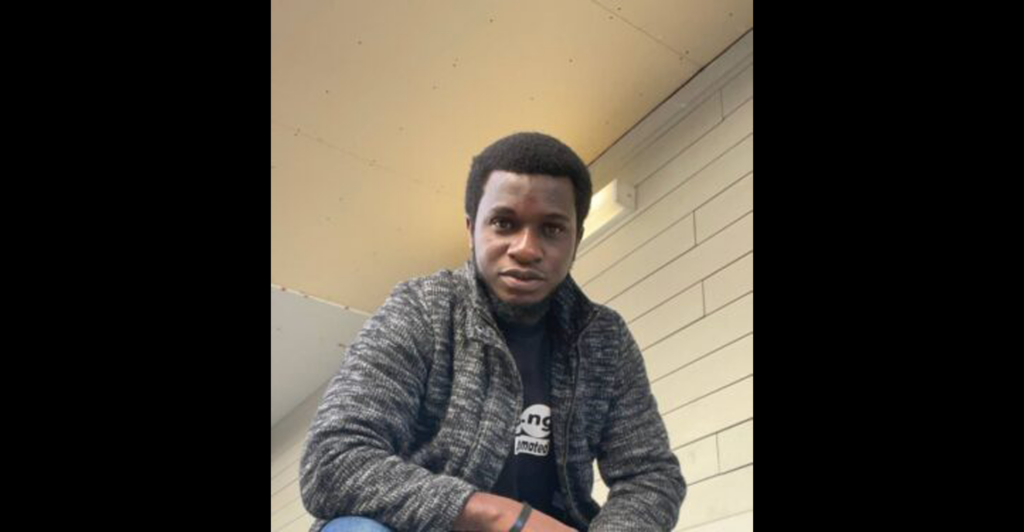We’re taking time to get to know the members of the GSA’s Early Career Scientist Committees. Join us to learn more about our early career scientist advocates.
Opoola Mubaraq Abolaji
Communication and Outreach Subcommittee
University of Louisville
Research Interest: I started my career as an agriculturist. I am a trained animal scientist and used to work in poultry production. I like agriculture, but I can’t say I love it—nor was I fulfilled. My interest has always been health, not production, which is why I switched to biology. The inquisitive person that I am, I have been curious about human-related diseases and what remedy I can provide as my contribution to the science world. Currently, I am studying the genetic mechanism of sugar-based feeding, using Drosophila melanogaster as the model organism. One of the leading health problems in the US today involves the consumption of sugar. The rate of obesity, diabetes, and many other associated ailments is high. So, understanding the genetic mechanism of how sugar-based feeding is controlled is essential to solve this common problem.
As a PhD-trained scientist, you have many career options. What interests you the most?
To be honest, I am at a crossroads in my career, and cannot decide between academia and industry. I love teaching, and research is also very important because I want to keep contributing to the science world. While waiting for admission into university after high school, I volunteered in a local community-based teaching program for the summer, where I had the opportunity to teach kids from elementary through high school. I discovered two things at the end of the program. The first was that I loved to teach; I immediately felt I belonged there. But the second was that teaching elementary school children was not for me. For two years during my undergraduate studies, I was Chairman of a tutorial committee, which allowed me to coach younger students in classes I had taken in the past. I was so glad to see a lot of them excel. I had a great sense of fulfillment, so I know passing knowledge to others is what I love to do. My passion for teaching is one of the many reasons I chose the PhD route. I wanted to have the best qualification to have a great impact.
My inquisitiveness is what drives me in research. I love being able to provide insights on how a problem can be tackled or solved, especially health-related problems in humans and animals. My current research on sugar, feeding behavior, and its impact on health gives me so much joy. Hopefully, I’ll be able to contribute to the solution we need and continue it as lifelong research.
On the other hand, I also love the challenge of the pharmaceutical and molecular biology industry, which is quite different from academics and academic research. Industries have state-of-the-art technologies at their disposal, and connecting with a vast network of people and environments is very enticing. I’d like to test the waters there too. Many of the products we use in our research—for example, the cDNA library and the reagents, equipment, and machines used—are sophisticated and complex. This intrigues me a lot, and I want to be part of the process that brings such complex products to fruition, not just be on the consumer end of the spectrum.
In addition to your research, how do you want to advance the scientific enterprise?
Research is only as good as how it is communicated to the public. I’d like to have a platform where early career scientists from different backgrounds can learn how to write well and become better science communicators. One of the major barriers to this, however, is the English language. For a large percentage of scientists that come to the US, English is not the first language. This hinders their ability to communicate their findings effectively. I’d like to bridge this gap and help scientists become better communicators.
I am from Nigeria, the heart of Africa (geographically speaking) and the world’s most populated black nation with over 200 million people. But, like many other African countries, we are disadvantaged. However, we have countless talent and brains that are ready and willing to contribute to and advance science. I’d like to advocate for more collaborations between universities/research institutes in the US and Africa.
As a leader within the Genetics Society of America, what do you hope to accomplish?
During my first few weeks in the program, I was nervous and felt I did not belong. However, everyone welcomed me and showed great trust in my leadership abilities. I’d like to carry-on this legacy of inclusivity and acceptance, where everyone in GSA’s ECLP not only feels like they belong but are confident that their voice is heard, and their opinions are valued.
Previous leadership experience
President, National Youth Service Corps-Economic and Financial Crime Commission Community Development Service Group, Akoko South-West Local Government, Ondo State, 2016–2017
Several positions at Offa Student Union, University of Maiduguri Chapter, 2010–2015
President, National Association of Kwara State Students, University of Maiduguri Chapter, 2014




